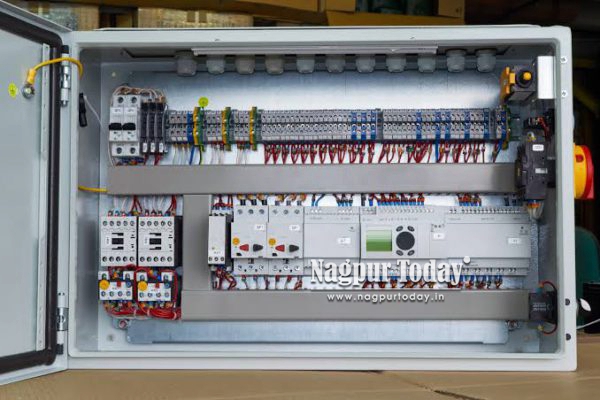
Industrial automation has transformed modern industries, enhancing efficiency, precision, and reliability. At the heart of this transformation are control panels, which serve as essential electrical instruments for monitoring, regulating, and optimising operations. These systems integrate multiple devices to streamline processes across sectors like manufacturing, energy, and infrastructure. As industries increasingly deploy automation technologies, well-engineered control panels ensure seamless operation, safety, and efficiency.
This blog explores the significance of control panels in modern process control, their key components, and the advantages of collaborating with a trusted electrical equipment provider.
Key Functions of Control Panels in Automation
Modern industries require precise and reliable control mechanisms to manage operations efficiently. Control panels are engineered to facilitate seamless integration between multiple electrical devices and automation systems, enabling improved productivity and reduced downtime. Their primary functions include:
- System Monitoring and Regulation: Control panels continuously oversee operational parameters, ensuring compliance with safety and efficiency standards.
- Process Automation: These electrical instruments integrate programmable logic controllers (PLCs) to execute automated sequences with minimal human intervention.
- Fault Detection and Troubleshooting: Advanced control panels incorporate diagnostic tools to detect and address system faults before they escalate.
- Energy Efficiency Management: By optimising power distribution and load balancing, these systems enhance energy conservation and sustainability.
Essential Components of a Control Panel
To ensure seamless automation, control panels comprise multiple electrical devices that work together to manage operations. Some of the critical components include:
- Power Supply Units: These components regulate voltage levels, ensuring stable power distribution to prevent fluctuations, protect sensitive equipment, and maintain consistent operational performance in industrial automation and process control systems.
- Programmable Logic Controllers (PLCs): PLCs employ logic-based programming to automate machinery, monitor inputs, and execute real-time decision-making, enhancing efficiency, precision, and adaptability in complex industrial processes and manufacturing operations.
- Human-machine Interface (HMI) Displays: HMI displays provide operators with real-time data visualisation, interactive controls, and system diagnostics, allowing seamless monitoring, troubleshooting, and optimisation of industrial automation processes with enhanced user accessibility.
- Circuit Breakers and Protective Relays: These safety devices protect equipment by preventing overloads, short circuits, and electrical faults, ensuring operational safety, minimising downtime, and prolonging the lifespan of industrial control systems.
- Sensors and Actuators: Sensors detect environmental changes, such as temperature or pressure variations, while actuators deploy necessary adjustments, ensuring automated processes remain precise, responsive, and efficient in dynamic industrial settings.
By integrating these devices effectively, industries can achieve enhanced operational efficiency, reduced manual intervention, and improved safety.
Industries That Rely on Control Panels
The application of control panels spans multiple industries, making them indispensable for various automated processes. Some of the key sectors that incorporate these systems include:
- Manufacturing: Automated assembly lines and robotic systems employ control panels to synchronise machinery, enhance precision, and improve productivity, ensuring seamless operations with minimal manual intervention in high-volume production environments.
- Energy and Utilities: Power plants and grid management systems utilise control panels to regulate energy distribution, monitor load balancing, and prevent disruptions, ensuring reliable power supply and optimised efficiency across industrial and residential networks.
- Water Treatment Plants: These facilities deploy automation through control panels to monitor water quality, regulate chemical dosing, and optimise filtration processes, ensuring compliance with safety standards and efficient resource management.
- Building Automation: HVAC and lighting control systems rely on advanced electrical equipment to manage energy consumption, enhance occupant comfort, and improve sustainability by integrating smart automation for temperature, ventilation, and lighting adjustments.
By leveraging customised control panels, businesses in these industries can enhance productivity and ensure seamless automation.
Benefits of Partnering with a Reputable Electrical Brand
Choosing a trusted electrical equipment provider is essential for the efficiency and longevity of automation systems. Reputed brands offer high-quality components that comply with industry standards, ensuring durability and reliability. They also provide customised solutions by incorporating innovative technology to develop control panels tailored to specific needs.
Certified providers uphold enhanced safety standards, ensuring electrical instruments meet regulations and minimise system failures. Additionally, a reliable partner offers expert technical support for installation, troubleshooting, and system upgrades. By investing in premium control panels from a recognised brand, industries benefit from superior performance, reduced downtime, and long-term sustainability. As automation advances, partnering with a reputable provider ensures access to cutting-edge solutions, making it a strategic decision for long-term industrial success.














